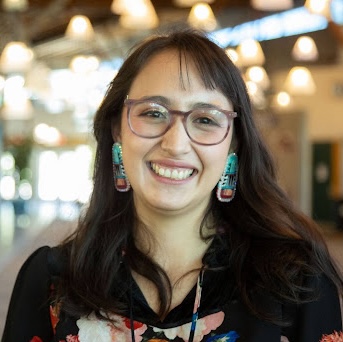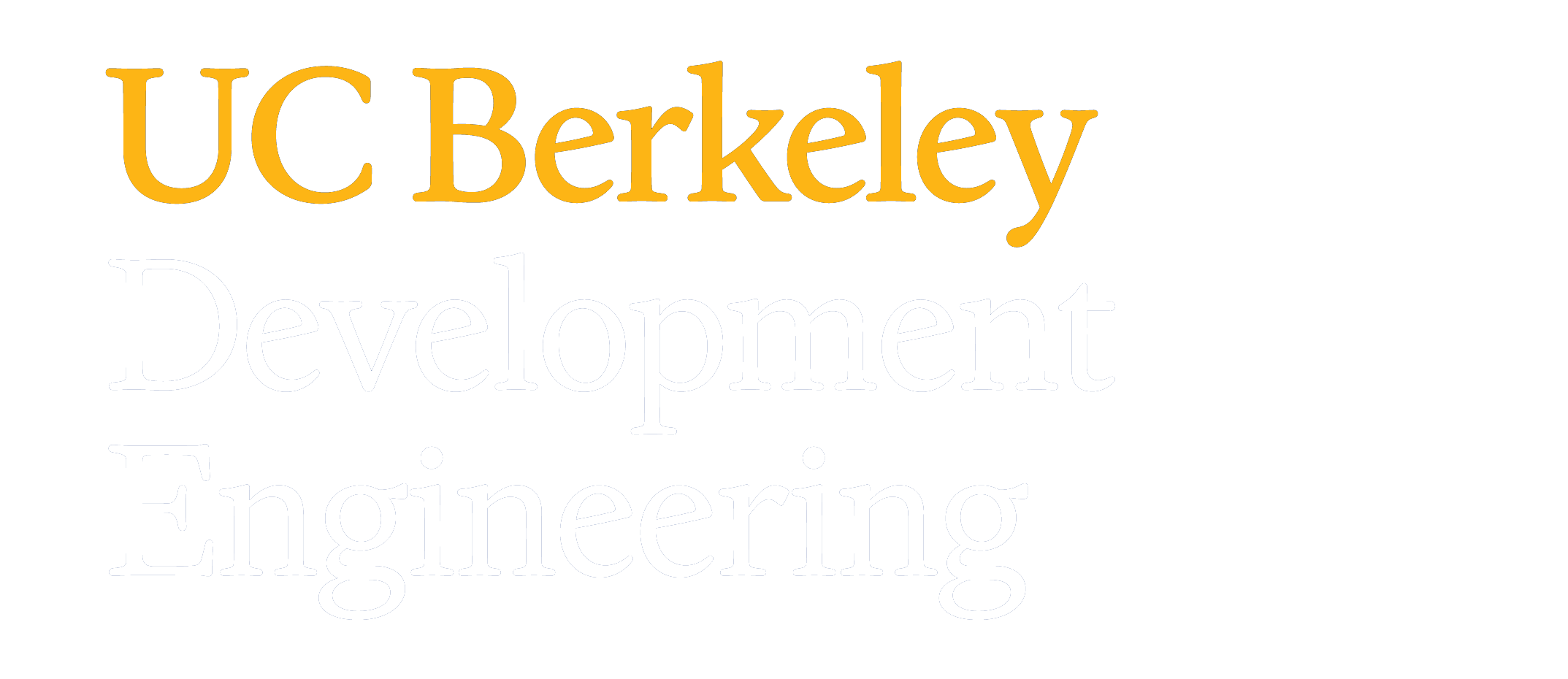DevEng 298: Writing and Media Lab in Development Engineering (Fall 2024)
Offered through UC Berkeley Development Engineering Program and Native FEWS Alliance partnering programs:
- Native FEWS Alliance Certificate program (Through Colorado University, Denver)
- Indigenous Food Energy Water Security and Sovereignty Seminar (ENVS 696N: Through University of Arizona)
More than most other STEM professionals, development engineers engage in social-impact work that can dramatically improve lives for people living in low-resource settings. The field’s newness means relatively little has been written about it and DevEng’s technical, specialized nature — and the complexity of the contexts it works in — make it difficult for practitioners to communicate their work to the public, crucial as that communication is.
At the same time, the rise and ubiquity of social media has made documenting projects in any location more feasible and offers a powerful tool to communicate serious problems and innovative solutions. Yet while promoting DevEng through writing is more of an issue of effective communication, visual media and social media can be harmful or manipulative if not wielded correctly.
In this class, we will think critically about how we can use writing (via op-ed–style articles), visual media (photos and videos), social media, and audio (particularly podcasting) to serve on-the-ground projects in design and engineering and how to communicate complex projects and contexts to a general audience — while avoiding ethical pitfalls. This course will not train students on specific software or media tools, but it will include exploring how to pitch op-eds to external organizations.
Assignments include reading, watching, or listening to relevant materials, which will be discussed in class, as well the development of individual op-eds related to students’ own projects, research, or studies, which will be peer reviewed and workshopped in class.
Class Writing and Publications

Renee Tsinigine
I’m writing about the protection of water Because I want people to learn about Indigenous perspectives on how we are related and connected to the water.
Salmon & His People
I am writing as an Indigenous woman who values and respects the sacredness of water. From the Southwestern Colorado River system to the Pacific Northwestern Columbia River tributaries water is life. It not only sustains us, it provides sustenance for the animal life who we are in relationship with. Whether we exercising our treaty rights or practicing ancestral ways of being, we are the first people to stand and speak for the voiceless.
Lu Lu
I’m writing about the environmental impact of mining cryptocurrencies. Because I want people to know both the positive and negative sides of the influence of Cryptocurrencies such as bitcoin to our mother Earth.
Can Cryptocurrency Be Worth Its Environmental Toll?
Cryptocurrencies like Bitcoin are transforming finance but at a steep environmental cost. Mining operations consume more energy than entire countries, raising urgent questions about sustainability. As global regulators debate crypto’s future, we must decide: Can innovation align with climate goals? This op-ed offers a timely analysis of cryptocurrencies’ environmental toll, from energy-intensive mining to promising solutions like renewable energy and consensus shifts. With my background in development engineering, I bring a technical yet accessible perspective, balancing criticism with actionable insights.
Rokeya Jahan Mukti
I’m writing about Agrivoltaics Because I want people to both solar energy and agriculture.
Benefits of Agrivoltaics
Agrivoltaics—a new emerging technique that merges solar energy and agriculture to tackle two of the world’s most urgent issues: food insecurity and climate change. Agrivoltaics offers an innovative approach to growing crops and generating renewable energy simultaneously. This is especially critical right now as we face challenges in both food production and the transition to renewable energy. With limited space to grow food and install solar panels, agrivoltaics offers a promising way to use land more efficiently. This op-ed will discuss the exciting potential of agrivoltaics, including its environmental and economic advantages, challenges like initial costs, and solutions to overcome them. I believe this topic will resonate with your readers, as it offers a tangible, sustainable solution for both food and energy security. I am a PhD student at the University of Arizona, studying electrical and computer engineering. Thank you for considering my pitch. I look forward to your response.
LaCher Pacheco
I’m writing about Indigenous Knowledge, Traditional Ecological Knowledge & Picture books. Because I want educators to create a safe learning environment for students who identify as American Indian or Global Indigenous
Hands on Pedology
The use of children’s picture books in a garden class can ignite conversations about Indigenous Knowledge. I believe picture books can help students dialogue about their ways of knowing things about gardening, especially soil and dirt. In Western Science dirt is considered dead but dirt is alive, just ask any dry farm farmer. There are different types of dirt and soil. Indigenous Knowledge encourages Knowledge keepers to share their knowledge and ways of interacting with their ecosystems. I am a garden intern for the University of Arizona’s School Garden Workshop and I am also a fourth year doctoral student in the College of Education’s Teaching and Learning Sociocultural Studies Program. My major is Children’s & Young Adult Literature. I grew up watching my father farm and I have always been interested in agriculture, horticulture and gardening so I am minoring in Environmental Education Sustainability.
Risper Rwengo
I’m writing about the systemic exploitation of rural farmers in Kenya’s agriculture. Because I want people to understand how global supply chains trap farmers in poverty and support solutions that empower them to reclaim their livelihoods.
Breaking the Chains of Exploitative Agriculture.
I’m writing about how rural farmers in Kenya, like my village in Kariunga, produce 70% of the country’s agricultural output yet live in poverty because I want people to understand how global supply chains exploit farmers and how we can create equitable systems. Imagine a farmer working from sunrise to sunset, earning just $2.50 for half a day or $5 for a full day of grueling labor—on their own land. Many lease their land for as little as $200 a year to corporations that promise prosperity but strip them of their independence, leaving them with no benefits, no insurance, and no retirement. I grew up seeing this firsthand, watching my grandmother toil endlessly in the fields to raise us, yet barely scrape by. It made me hate agriculture. This has to change. Farmers deserve fair trade practices, direct market access, and policies that prioritize their rights. It’s time to dismantle exploitative systems and build a future where farmers thrive—not just survive.
Ahmed AlDhaheri
I’m writing about the need for affordable, scalable cooling shelters to combat heat stress because I want people to understand the urgency of this global issue and push for solutions that protect vulnerable populations.
Is cooling the missing link in climate inequality?
As global temperatures rise, heat stress has become a silent crisis affecting over 1 billion people worldwide — disproportionately impacting the most vulnerable. In India alone, extreme heat claimed over 25,000 lives in 2022, with outdoor workers and low-income families bearing the brunt. While wealthy populations can rely on air conditioning, many communities are left without affordable, sustainable cooling solutions. Could passive cooling shelters be the missing piece in the fight against climate inequality? I’m a master’s student in Development Engineering at UC Berkeley, working on a project designing low-cost, energy-efficient cooling shelters for vulnerable populations in India. With Dr. Gadgil’s leadership our teams work aims to create scalable models that can be adapted globally, particularly in heat-stressed regions.
Melissa Jacquez
I am writing about integrating qualitative research and community-driven science because I want people to understand the transformative power of listening to and prioritizing community voices in addressing environmental justice challenges.
Why STEM Researchers Should Embrace Qualitative Methods for Community Impact
As the push for community-centered solutions to environmental justice grows, it’s time for STEM researchers to rethink how we engage with the communities we serve. Quantitative data alone is not enough. My op-ed highlights how qualitative methods—like coding open-ended responses from community members—are vital tools for amplifying voices and fostering trust. These methods create research outcomes that are more sustainable and community-driven. Why now? With increasing attention on environmental justice and the need for inclusive, community-based approaches, this is a pivotal moment for STEM fields to embrace these powerful methods. I’m an Indigenous environmental science researcher whose work focuses on co-developing STEAM education curricula in Arizona’s underserved Copper Corridor. My op-ed offers a personal perspective on how integrating qualitative research has transformed not only my work but also the communities I serve.
Excellence Joshua
I’m writing about the burden of childcare on women empowerment programs in Africa Because I want people to begin to think holistically and consider motherhood debt in designing programs to empower young women in Africa.
The Missing Link in Women Empowerment: Addressing Childcare and Motherhood Debt in Africa
Addressing Childcare and Motherhood Debt in Africa. It explores how the lack of accessible childcare undermines women’s empowerment initiatives on the continent, drawing from my personal experiences as a social entrepreneur working in the intersection of women, technology and impact; and single mother. The piece highlights: (1) How motherhood debt limits women’s participation in empowerment programs. (2) The critical role childcare plays in sustainable solutions. (3) Real-world examples, including a case study from Kenya and lessons from my work. As a current student of Development Engineering at the University of California, Berkeley, this op-ed blends lived experience, data, and actionable insights to shed light on a gap often overlooked in gender equity discussions.
Angel Martin
I’m writing about creating inclusive environments in STEM because I want people to inspire others to persevere through discrimination and contribute to a more equitable and innovative community.
Breaking Barriers and Building Rockets: A Journey of Determination and Inclusion
I am writing about the pressing need for inclusivity in STEM fields because I want people to understand and validate its significant impact on equity and innovation. This op-ed offers a compelling personal narrative that highlights the challenges and triumphs of fostering inclusivity in STEM. It provides concrete evidence of the benefits of diversity and offers practical steps for creating more inclusive environments. By sharing my story, I hope to inspire others to persevere, challenge the status quo, and contribute to a more equitable and innovative STEM community.Schedule
Editing Techniques (in the age of AI)
Dr. Yael Valerie Perez and Sam Goldman
Structuring op-eds
Dr. Yael Valerie Perez and Sam Goldman
Narrative Writing
Dr. Yael Valerie Perez and Sam Goldman
Pitching and submitting op-eds
Dr. Yael Valerie Perez and Sam Goldman
Workshop drafts and pitching exercise
Dr. Yael Valerie Perez and Sam Goldman
Presentation Day

